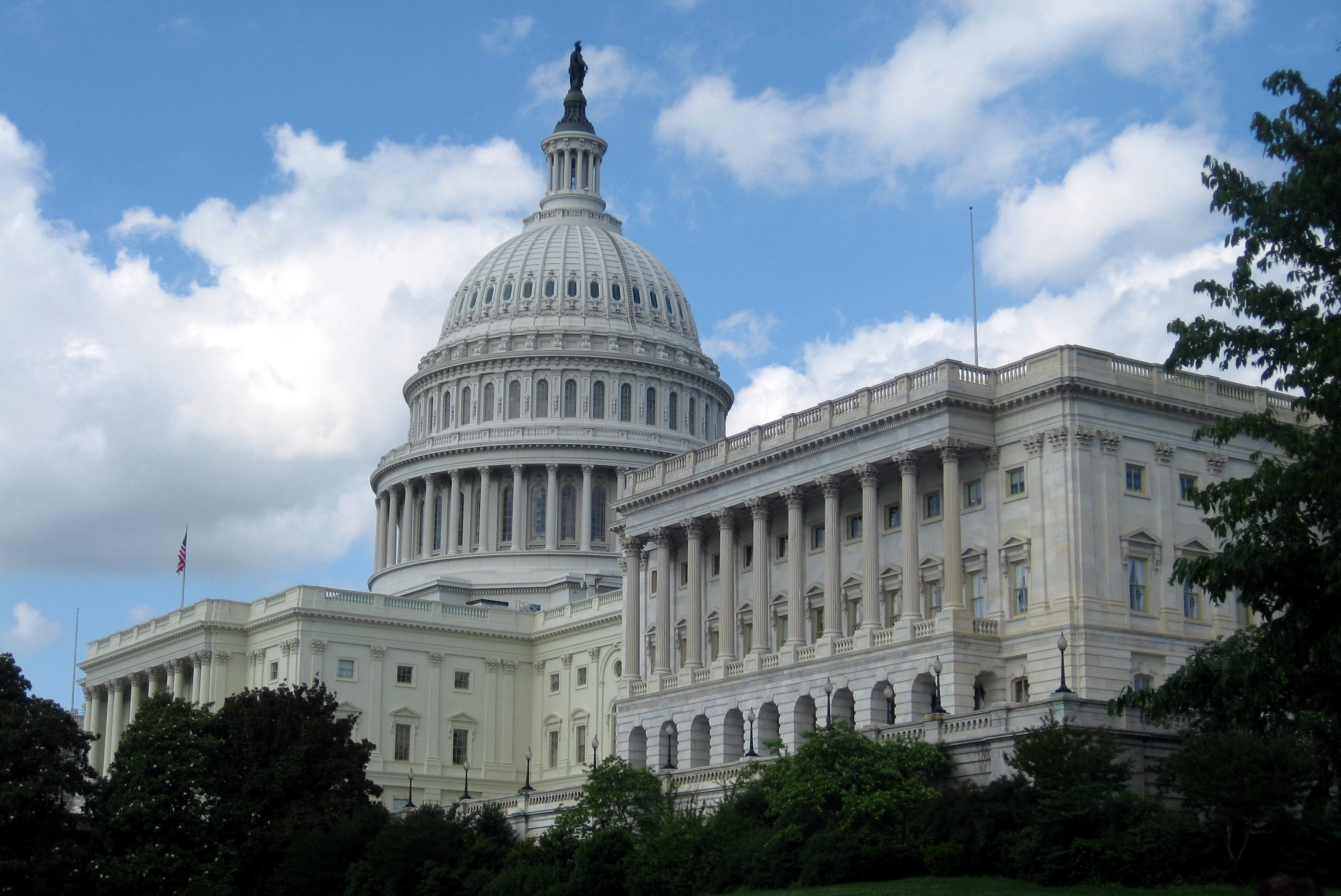What’s in the D.C. District Court’s Proxy Voting Decision?
Judge Rudolph Contreras held that the Constitution’s Speech or Debate Clause bars House Republicans’ challenge to the constitutionality of the House of Representatives’ proxy voting system.

Published by The Lawfare Institute
in Cooperation With

On Thursday, Aug. 6, Judge Rudolph Contreras of the U.S. District Court for the District of Columbia dismissed House Republicans’ lawsuit seeking to enjoin the use of the House of Representatives’s proxy voting system. That system, adopted on May 15, established a mechanism to allow an absent House member to designate another member to cast votes on his or her behalf during the coronavirus pandemic. Under the authorizing resolution, a representative designates his or her proxy in a letter transmitted to the clerk of the House. A proxy must vote or record the presence of the member whom they represent according to the specific instructions that member gave them. Any individual voting by proxy counts toward the majority the House needs for a quorum.
On May 26, scores of Republican representatives and a handful of their constituents challenged the constitutionality of proxy voting, arguing that it violates the Constitution’s quorum requirement, the “yeas and nays” requirement, the nondelegation doctrine and the “structure” of the founding document. At the heart of these alleged violations are two fundamental assertions. First, the plaintiffs argued that the Constitution requires members of Congress to be physically present for the House to conduct official business such as votes. And second, the group contended that the Constitution bars members from delegating any aspect of their legislative duties, including the power to cast their votes.
In a concise opinion, Contreras held that the Republican plaintiffs cannot challenge the constitutionality of proxy voting because the Constitution’s Speech or Debate Clause renders the defendants in the case—House Speaker Nancy Pelosi, Clerk of the House Cheryl Johnson and House Sergeant-at-Arms Paul Irving—absolutely immune from civil suit for their administration of the proxy system. Although Contreras had entertained a lengthy debate on the merits of the suit at oral argument, the district judge declined to decide in his opinion whether the Constitution requires members’ physical presence for votes or whether the nondelegation doctrine bars the use of a proxy under the House’s proxy voting resolution. Interestingly, he also declined to decide whether House Republicans had standing to bring the suit—though he expressed doubts about their standing argument. And while the judge spent the majority of his opinion dissecting the applicable case law and the parties’ arguments about whether the case is justiciable, he nevertheless affirmed one of the central principles at issue in the suit: that “the House unquestionably has the authority, under the Constitution, to ‘determine the Rules of its Proceedings.’”
On Aug. 17, Speaker Pelosi exercised that broad authority, extending the “covered period” during which members can vote by proxy until Oct. 2.
In their pleadings before the district court, the plaintiffs attempted to demonstrate injury, and thus standing to sue, by arguing that proxy voting dilutes their voting power. In their reply memorandum of law, they offered a hypothetical to flesh out that theory. Were 200 members to vote on a bill in person and 50 to vote by proxy, they argue, the strength of the physically present member’s vote would decrease from 1/200 to 1/250. To the plaintiffs, this amounts to a clear mathematical dilution of their voting power—provided, of course, that most Republicans continue to refuse to vote by proxy.
On June 19, the defendants moved to dismiss the lawsuit. They proffered two reasons for that dismissal. First, they argued that the plaintiffs lack standing to sue because there was no vote dilution, and thus no injury. But even if vote dilution did occur, the defendants submitted, the case should be dismissed under the Supreme Court’s 1997 decision in Raines v. Byrd. Second, the defendants asserted that the Constitution’s Speech or Debate Clause shields Pelosi, Johnson and Irving from civil suit for their administration of the proxy system. While Contreras dismissed the lawsuit only on the basis of that second ground and declined to resolve the question of whether the plaintiffs have standing to sue, he addressed each of the defendants’ arguments for dismissal individually.
Turning first to the vote-dilution theory of injury, Contreras acknowledged that the U.S. Court of Appeals for the D.C. Circuit has held, in a string of cases, that members of Congress have standing to allege that their voting power has been diluted. But Contreras distinguished those cases—Michel v. Anderson, Vander Jagt v. O’Neill and Skaggs v. Carle—from the suit before him by observing that those cases “define[d] Member voting power relative to the entire congressional body,” whereas the plaintiffs in this case measure member voting power relative to the number of representatives physically present in the Capitol.
Contreras noted that in Michel, for instance, the D.C. Circuit considered a challenge to the constitutionality of a House rule that permitted delegates from American Samoa, the District of Columbia, Guam, Puerto Rico and the Virgin Islands to vote in the Committee of the Whole. That body is a procedural innovation, designed to expedite the consideration of legislation, that allows the entire House of Representatives to operate as a committee on which every member sits. And the House rule at issue in Michel increased the number of members who could vote on that committee from 435 to 440. There the D.C. Circuit held that the House representatives who were plaintiffs in the suit automatically had standing to assert that their voting power had been diluted, and that the constituent plaintiffs did, too, because they previously “had a right to elect a representative who cast one of 435 votes, whereas now their vote elects a representative whose vote is worth only one in 440.”
Similarly, in Vander Jagt, the D.C. Circuit considered whether House Republicans’ voting power had been diluted when they were given fewer seats on House committees than they were, in the circuit’s words, “proportionally owed.” At that time, Democrats controlled 55.86% of seats in the House and Republicans 44.14%. But Republicans held only 40% of seats on the Appropriations and Budget Committees, 34.29% of seats on the Ways and Means Committee, and 31.25% of seats on the Rules Committee. The court ruled that the representative plaintiffs had standing because “as legislators and as voters their political power has been diluted.”
As Contreras observed, however, the Republican plaintiffs in the current suit make a different argument than the plaintiffs in Michel and Vander Jagt made. Here the plaintiffs argue that voting power should be measured against the number of members physically gathered in the Capitol. “The parties do not cite, and the Court has not found, any cases adopting Plaintiffs’ theory,” Contreras concluded. Indeed, he added, “one could argue that choosing to abstain or to be entirely absent for a particular vote are methods of expressing [a member’s] share of congressional power; it is not clear that Members should be subtracted from the denominator when they are not present.”
Despite essentially rejecting plaintiffs’ vote-dilution theory, Contreras declined to dismiss the case on that ground.
The judge turned next to the defendants’ argument that the Supreme Court’s decision in Raines bars plaintiffs’ lawsuit even if they did suffer a dilution of their voting power. In that portion of the decision, Contreras declined to definitively resolve the question of whether Raines applies to the current case.
In Raines, six lawmakers challenged the constitutionality of the Line Item Veto Act, which gave the president the power to cancel certain spending and tax benefit measures after he signed them into law. The Supreme Court held there that the injury the lawmakers alleged—a “dilution of institutional legislative power”—did not give rise to standing because the lawmakers had not “been singled out for specially unfavorable treatment as opposed to other Members” and because their “claim of standing [was] based on a loss of political power, not a loss of any private right, which would make the injury more concrete.”
Unlike the current case, however, Raines involved an interbranch dispute between lawmakers and the president. Thus, the plaintiffs in this case made—and Contreras intimated that he agreed with—the argument that Raines did not overrule the string of D.C. Circuit cases (such as Michel and Vander Jagt) which held that lawmakers engaged in an intrabranch dispute have standing to assert a dilution of their voting power. The problem in Raines, in other words, was that lawmakers’ broad assertion of a loss of institutional legislative power in an interbranch dispute was too abstract and dispersed to give rise to standing, whereas lawmakers’ claimed dilution of their legislative power in the intrabranch (i.e. intra-lawmaker) disputes in Michel and Vander Jagt was concrete and measurable.
While Contreras did concede that “many portions of Raines suggest that this case falls within its logic,” he concluded that “as a matter of district court restraint, the Court cannot contradict circuit precedent because Michel was not necessarily eviscerated by Raines.” In other words, because Michel held that vote dilution gave rise to standing in an intrabranch dispute similar to this case, it—not Raines—seems to govern whether the Republican plaintiffs here have standing to sue in D.C.’s federal courts.
In the final portion of the opinion, the part upon which Contreras grounded his holding, the judge addressed the defendants’ argument that the Speech or Debate Clause bars plaintiffs’ challenge to the constitutionality of proxy voting. That clause has been interpreted by the U.S. Supreme Court and the D.C. Circuit to provide members of Congress and congressional officers and aides absolute immunity from civil suit for all “legislative acts.” And in Consumers Union v. Periodical Correspondents’ Association, the D.C. Circuit clarified that the enforcement of congressional rules by congressional officers falls squarely within the sphere of acts protected by the Speech or Debate Clause.
Contreras held in his Aug. 6 opinion that Consumers Union is the binding precedent for this case, and added that he could “conceive of few other actions, besides actually debating, speaking, or voting, that could more accurately be described as ‘legislative’ than the regulation of how votes may be cast.”
Contreras also addressed in his opinion the concerns that the plaintiffs had raised about the implications of the Speech or Debate Clause’s absolute immunity. At oral argument, the plaintiffs argued that if the Speech or Debate Clause bars their challenge to the proxy voting system, it would also bar future challenges to the constitutionality of far more discriminatory House rules. If the clause compels the dismissal of plaintiffs’ suit, they queried, would it not also compel the dismissal of a hypothetical lawsuit challenging the constitutionality of a House rule barring first-term members from voting on appropriations? Or a House rule counting male members’ votes twice and female members’ votes only once?
Contreras conceded that the “implications of the broad immunity conferred by the Clause … may be troubling.” But in a footnote at the end of the opinion, he parried that “the present case does not involve hypothetical rules, discussed at oral argument, that deprive Members of votes on a discriminatory basis. Therefore, the Court need not decide whether immunity would apply in such a case.”
Having addressed that concern, Contreras concluded that the Speech or Debate Clause bars plaintiffs’ lawsuit. The practice of proxy voting, in other words, may continue.
Contreras’s opinion is an unequivocal win for Speaker Pelosi and House Democrats. Not only does the decision allow proxy voting to continue, but it suggests that courts would decline to review even more comprehensive remote-voting measures. In that way, the decision amounts to a victory for Congress institutionally, as it reinforces the long-standing principle of judicial deference to congressional rulemaking.
Despite the plaintiffs’ loss, however, the case is not yet over. On Friday, Aug. 7, the day after Contreras issued his opinion, the plaintiffs filed a notice of appeal to the D.C. Circuit. But to prevail on appeal and secure a reversal of the district court decision, the plaintiffs must accomplish a Herculean task. Not only must they convince the circuit that the Speech or Debate Clause does not apply and that Consumers Union is not the binding precedent for this case, but they must also convince the court both to accept their novel vote-dilution theory of injury and to rule that Contreras was wrong to distinguish that theory from the vote-dilution theories the circuit accepted in Michel and Vander Jagt. Only then, provided the circuit holds that Raines does not apply, would the plaintiffs successfully demonstrate standing to sue and earn an opportunity to litigate the merits of their case. The chance of each of those steps happening seems slim.





